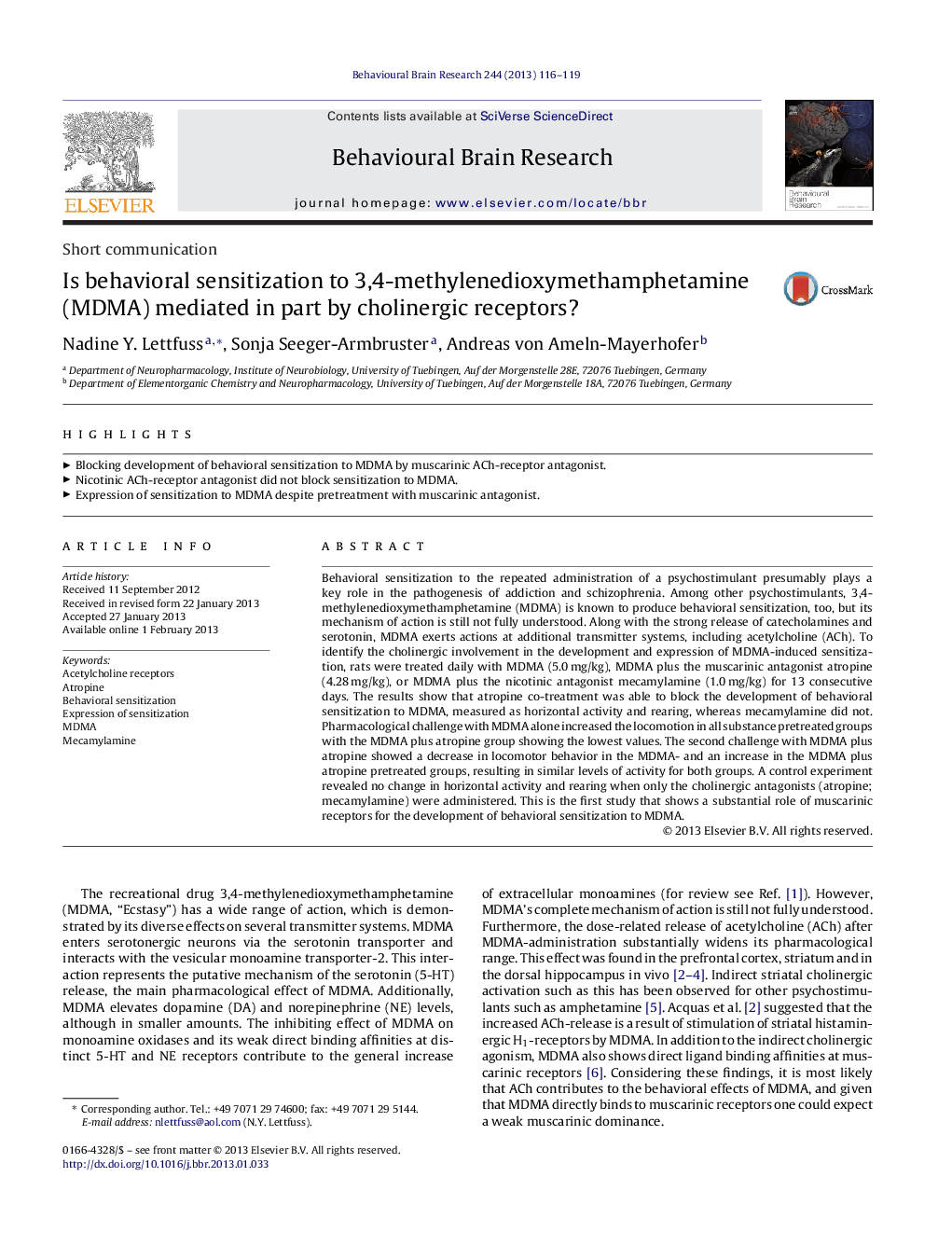| Article ID | Journal | Published Year | Pages | File Type |
|---|---|---|---|---|
| 4312741 | Behavioural Brain Research | 2013 | 4 Pages |
Behavioral sensitization to the repeated administration of a psychostimulant presumably plays a key role in the pathogenesis of addiction and schizophrenia. Among other psychostimulants, 3,4-methylenedioxymethamphetamine (MDMA) is known to produce behavioral sensitization, too, but its mechanism of action is still not fully understood. Along with the strong release of catecholamines and serotonin, MDMA exerts actions at additional transmitter systems, including acetylcholine (ACh). To identify the cholinergic involvement in the development and expression of MDMA-induced sensitization, rats were treated daily with MDMA (5.0 mg/kg), MDMA plus the muscarinic antagonist atropine (4.28 mg/kg), or MDMA plus the nicotinic antagonist mecamylamine (1.0 mg/kg) for 13 consecutive days. The results show that atropine co-treatment was able to block the development of behavioral sensitization to MDMA, measured as horizontal activity and rearing, whereas mecamylamine did not. Pharmacological challenge with MDMA alone increased the locomotion in all substance pretreated groups with the MDMA plus atropine group showing the lowest values. The second challenge with MDMA plus atropine showed a decrease in locomotor behavior in the MDMA- and an increase in the MDMA plus atropine pretreated groups, resulting in similar levels of activity for both groups. A control experiment revealed no change in horizontal activity and rearing when only the cholinergic antagonists (atropine; mecamylamine) were administered. This is the first study that shows a substantial role of muscarinic receptors for the development of behavioral sensitization to MDMA.
► Blocking development of behavioral sensitization to MDMA by muscarinic ACh-receptor antagonist. ► Nicotinic ACh-receptor antagonist did not block sensitization to MDMA. ► Expression of sensitization to MDMA despite pretreatment with muscarinic antagonist.
